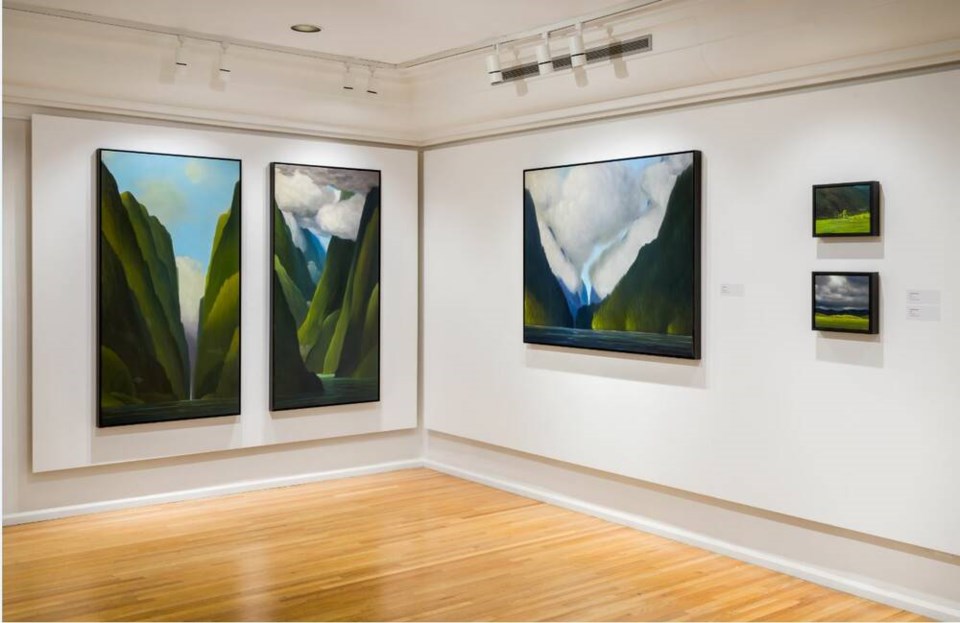It seems a juxtapositional dual career, the one of artist and firefighter, but for West Vancouver landscape painter Ross Penhall the two are intrinsically linked.
His latest exhibition certainly wouldn’t have been brought into existence if it hadn’t been for his 29-year career battling urban and interface North Shore fires for the District of West Vancouver.
Losing Control of the Landscape at the West Vancouver Art Museum, running until Dec. 16, examines Penhall’s relationship with the great outdoors, a relationship that has shifted over time as he has witnessed firsthand the effects of human’s interference with nature.
“We wanted to set the context within the question of, how can you be a landscape artist in the time of climate change and climate emergency?” said exhibition curator Hilary Letwin.
“Both of those jobs had a very deep impact on Ross, and his artistic development as a landscape artist.”
The exhibition, a two-year collaboration between Letwin and Penhall, showcases landscapes from across the country, with one gallery devoted to the views of the West Coast, another dedicated to the flat grasslands of the Prairies, and then a third focusing on Canada’s East Coast.
The title of the exhibition, Losing Control of the Landscape, was very much intended to have a double meaning, said Letwin. Not only is it looking at the artist’s work in the context of climate change, and losing control of the landscape in that sense, but also in terms of his own painting style.
“Oftentimes, when I paint, it’s me trying to get control. This is like losing control of the landscape, or losing myself in the landscape,” said Penhall.
Hanging alongside the artist’s large-scale works are recently painted panel studies, most of which were painted outdoors, and far more loosely constructed than his bigger, studio-produced works.
“So many times when I start a painting, it’s just this leap of faith. You can’t get too precious with the imagery of the small ones,” he said, adding how he used to paint primarily from photographs, but shifted to the great outdoors to embrace a more spontaneous and instinctual way of painting.
“I have a little jump kit in my car that I keep with me and often I’ll pull over, find a spot to set up, and I’ll have no idea where it is or what it’s going to turn into, but I’ll find something to paint, just because I need to do it.”
The artist, who has lived in the same West Vancouver home for the past 35 years, said he is most often drawn to the landscapes closer to home, with Lighthouse Park and Horseshoe Bay being regular sources of inspiration.
“I have a real respect for the coast, the water and the mountains, and what they’re capable of doing to you,” said Penhall, adding how he hopes the exhibition’s audience will be moved by the beauty of his imagery into a deeper respect for the outdoors, not coerced into it by stark or saddening subject matter.
“If you look at my imagery, it’s not devastation,” he said. “In fact, it’s quite picturesque and beautiful, and that’s how I view it,” he said.
“These paintings weren’t necessarily painted to teach people a lesson. I just want people to have reverence for what’s around them. We live in a very, very beautiful place, and we should be honouring it, that’s all I’m trying to do.”
Mina Kerr-Lazenby is the North Shore News’ Indigenous and civic affairs reporter. This reporting beat is made possible by the Local Journalism Initiative.



